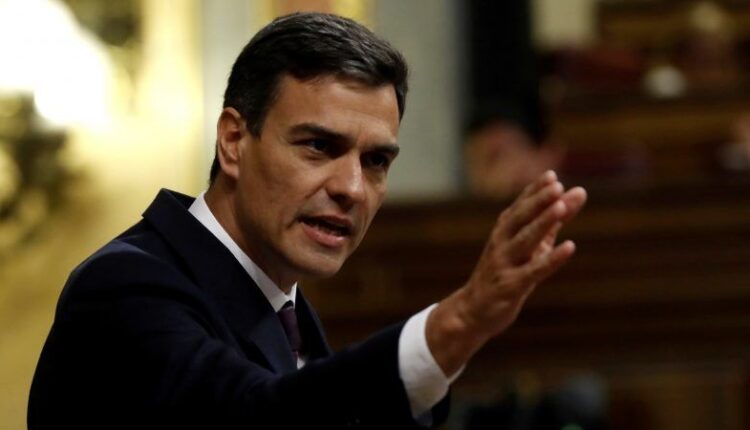Sánchez Readies for Second Term Amid Catalan Amnesty Deal
Spanish Leader's Outreach to Catalan Separatists Sparks Outrage and Massive Protests from Right-Wing Parties.
Pedro Sánchez faces a challenging and turbulent second term as Spain’s Prime Minister, having regained power through a controversial amnesty deal for Catalan separatists. This decision has ignited outrage from right-wing parties and triggered massive protests across the country.
The investiture vote, held on Thursday, marked the end of a nearly four-month period since the inconclusive snap election in July. In that election, Sánchez’s Spanish Socialist Workers Party (PSOE) narrowly lost to the conservative People’s Party (PP).
Sánchez secured an absolute majority in the recent vote, gaining the support of 179 out of Spain’s 350 MPs after a contentious debate. While the PSOE celebrated the victory as a triumph of democracy, it came at a steep cost and relied on the backing of smaller regional parties, including Catalan and Basque nationalists.
Despite winning the July election, the PP failed to form a government, unable to secure support from the far-right Vox party and other smaller factions.
Sánchez, along with his leftwing Sumar alliance partners, successfully garnered the essential support for their coalition by acquiescing to the amnesty demands of the two prominent Catalan pro-independence parties— the pragmatic Catalan Republican Left (ERC) and the hardline Junts per Catalunya (Together for Catalonia).
Amidst intense political maneuvering, Spanish Prime Minister Pedro Sánchez has introduced a draft law offering amnesty to individuals involved in catalyzing Catalan independence over the past decade. This unexpected move, contradicting Sánchez’s pre-election stance, has sparked criticism from the People’s Party (PP) and Vox, accusing him of hypocrisy and prioritizing self-preservation over national interest.
The PP has called on the EU to intervene, while Vox claims Sánchez is orchestrating a “coup d’état in capital letters.” Tensions have escalated, resulting in large protests and clashes in Spain. Additionally, Junts has cautioned Sánchez against expecting unconditional support over the next four years.
Sánchez defends the amnesty as a means to turn the page on the past, emphasizing its broader impact beyond political leaders. He maintains it is not an assault on the Spanish constitution but a demonstration of its strength. However, PP’s leader, Alberto Núñez Feijóo, warns of democratic concerns and accuses Sánchez of compromising Spain’s unity.
The draft amnesty bill covers events from 2012 to November 13, 2023, encompassing key independence referendums. While beneficiaries include figures like Carles Puigdemont, Junts leader, the socialists stress its general application, aiding teachers, civil servants, and police officers.
Despite the domestic backlash, European leaders, including German Chancellor Olaf Scholz and European Council President Charles Michel, have congratulated Sánchez on his return to office.
Read Also: Spain’s Pedro Sanchez Described Relations with Morocco as Strategic


